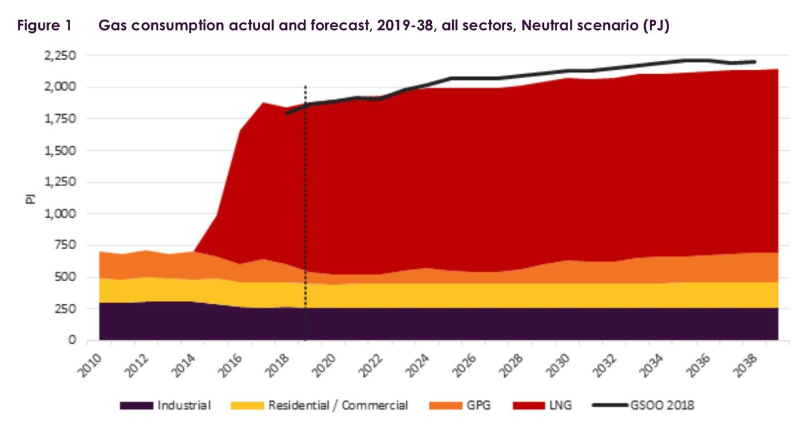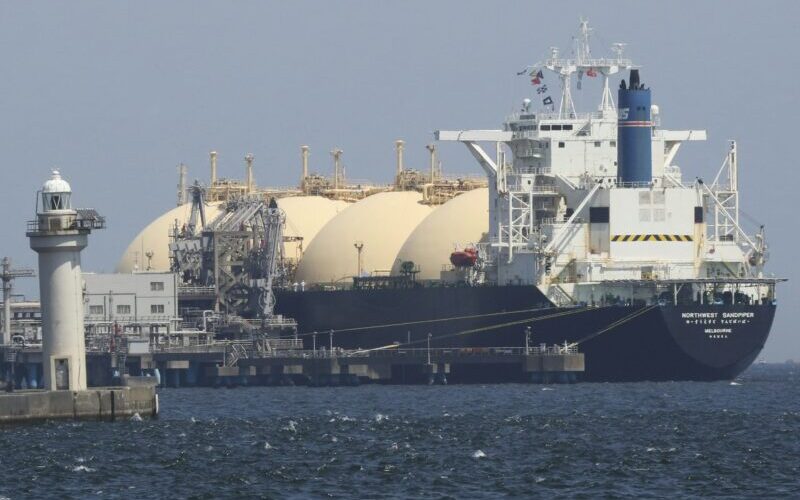Newly minted Industry Minister, Tim Ayres, has hinted at a future federal gas reservation policy. He may be unaware of the prohibition of discussing it in public, as Rex Patrick knows all too well.
In 2006, Western Australia introduced a mechanism that required gas exporters to retain at least 15 per cent of what they produced for local use. The decision wasn’t popular at the time, but it was a good one.
In October 2022, when the Albanese Labor government handed down its first budget, Treasury was predicting a 44% increase in the price of gas over the next 12 months, while WA Premier Mark McGowan appeared on the ABC 7.30 report, estimating an increase in WA of only 2.5 to 3%.
Because of their gas reservation policy, McGowan boasted that Western Australians have “reliable electricity, affordable gas, [and a reliable supply,” and “none of the sort of chaos you’re seeing in the eastern states.”.
He went on to say, “Obviously, producers of gas in the east wouldn’t like it, but Australian national interest and the people of Australia must come first.”
Not only would the producers in the east not like it, but the government also wouldn’t let anyone talk about it.
Dutton breaks taboo
Which is why senior diplomat, Warran Hauck, must have been having heart palpitations on April 9 this year, when Peter Dutton announced his government, “will immediately introduce an East Coast Gas Reservation scheme to ensure reliable and affordable energy for households and businesses.”
Hauck is the Assistant Secretary, Energy Diversification and Security Branch, Trade Resilience, Indo-Pacific Economic and Latin America Division of the Department of Foreign Affairs and Trade (there’s clearly some competition amongst our diplomats as to who has the longest title).
Hauck has over 20 years’ experience within DFAT managing Australia’s international trade and economics and was quite adamant in sworn testimony to the Administrative Appeal Tribunal (AAT) in 2023/24 FOI proceedings that disclosure of domestic gas reservation policy plans would cause damage to Australia’s relations with Singapore, South Korea and Japan, who are all reliant on Australian gas.
Australia has censored the easy fix for electricity prices – Rex Patrick gets gas FOIs back
But for the gas lobbyists
In 2013, in his opening address to the Australian Petroleum Production and Exploration Association (APPEA) conference in Brisbane, the then Federal Minister for Resources, Gary Grey, stated, “The Australian Government does not agree that domestic gas reservation would keep gas prices down or put more gas into the market”.
In our view, it would create uncertainty and deter investment in new gas supply.
Grey was so very wrong, but it was music to the industry’s ears. It’s hard to imagine the conversations that the gas executive would have been having that night as they celebrated with bottles of Grange Hermitage decanted for all to enjoy.
By 2017, with six new gas trains being used to export gas, the folly of Minister Grey’s statement was becoming readily apparent. With new tenements not delivering enough gas to meet their contracted export commitments, the gas companies started diverting gas from the domestic supplies, to the point where some Australian companies couldn’t even get an offer to supply them with gas. There was no Australian gas to sell to Australians.

Gas export volumes in red (Source: AEMO)
Whilst the introduction of the ‘ADGSM’ gas trigger in 2017 provided the pathway to guarantee gas supplies, tight supply ensured the prices remained incredibly high. Only for a short period in 2020 did the East Coast spot price sink back below the pre-Gladstone $5 per gigajoule price.
Onya, Tim Ayres
A gas reservation policy is the way to go.
But perhaps Ayres hasn’t yet been lobbied by the Australian Energy Producers (the new name for the APPEA that had so effectively schmoozed Minister Grey).
And he clearly hasn’t been briefed by Mr Hauck, who’s no doubt having conniptions inside the halls of DFAT. It’s one thing for an opposition leader to say something that might upset our trading partners, it’s quite another thing for a serving minister to say something so ‘upsetting’.
Much of the evidence that Hauck gave in the Administrative Appeal Tribunal in 2023/24 was confidential. But we can turn to the decision of Tribunal Deputy President Britton-Jones to get a sense of what it was.
“Mr Hauck gives us examples in his affidavit of foreign governments expressing concerns regarding the potential impact of past [gas reservation] policy change [options]. He deposes that important aspects of his current role have been to provide assurances to foreign governments of Australia’s commitment to remaining a reliable energy supplier in the future.
“With respect to the Department’s [Gas Reservation] Options Paper, he says that the disclosure of the redacted material would, or could reasonably be expected to, cause damage to Australia’s international relations.
“Whilst Australia has a strong relationship with Japan, Korea and Singapore, their reliance on energy from Australia provides the contextual setting for potential damage arising from disclosure of information relating to gas reservation in Australia because of the very real economic impact that Australia’s domestic policies could have on those countries.”
The situation was clear in the DFAT position. No one is to mention the ‘R’ word!
Damage control
So, what’s Minister Ayre doing? He’s not the lead minister on gas, and whilst talking sense, he appears to have spoken outside the government’s guidelines.
There’s no doubt that Hauck will now have his work cut out for him, calming his opposite numbers in Singapore, Korea and Japan on Ayres’ faux pas.
The Minister for Resources, Madeleine King, has been taking a more learned and nuanced approach, suggesting to the gas industry that the Labor Government is focusing on ensuring the mechanisms that are in place are delivering on the purpose they need to deliver.
Hauck will also be pressing back up through his connections to the Secretary of DFAT and to both Foreign Minister Wong and Minister King to get Ayres put back into his box.
The interests of trade with Singapore, Korea and Japan come first,
whilst the cost of living for Australians is a distant second at best.
And so that’s the last we’ll hear from Ayres talking about a gas reservation policy; no matter how right he is.
Climate Betrayal: how backroom deals with Japan locked Australia in for decades of gas
Rex Patrick is a former Senator for South Australia and, earlier, a submariner in the armed forces. Best known as an anti-corruption and transparency crusader, Rex is also known as the "Transparency Warrior."

